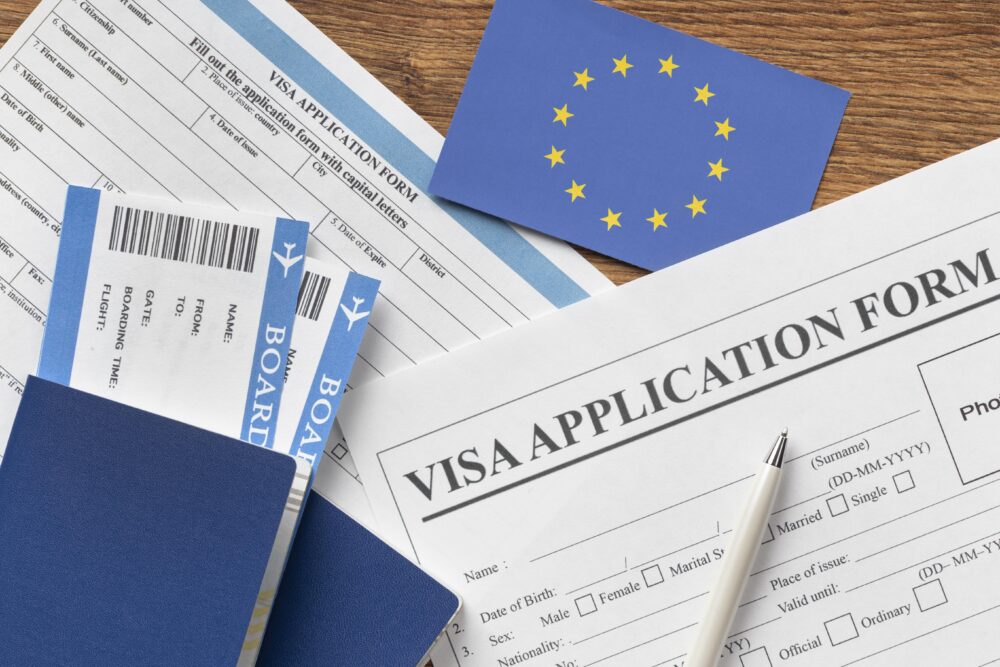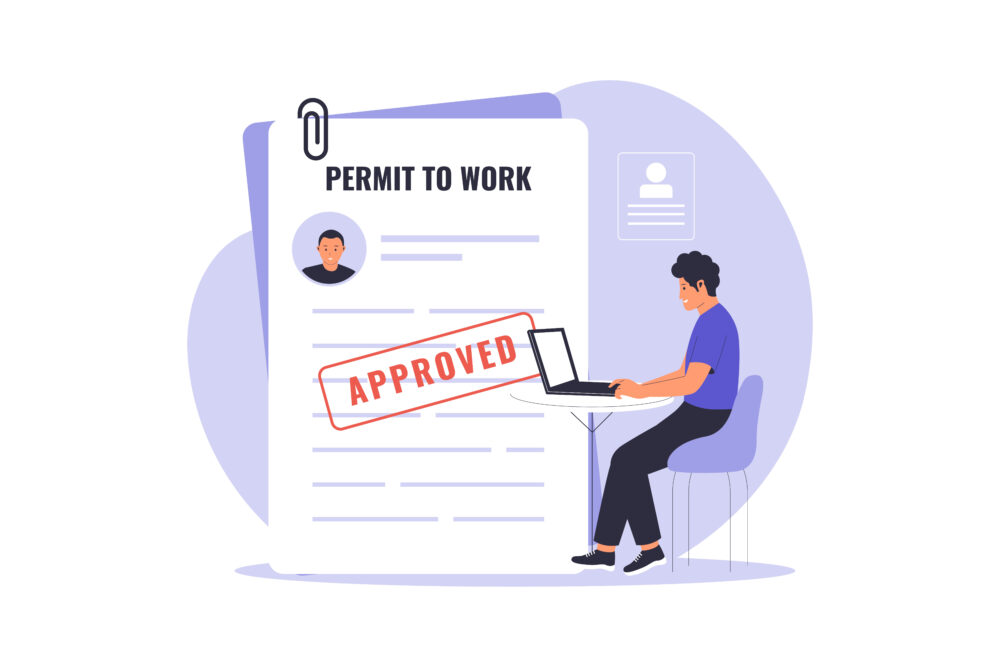An electronic visa (e-visa), designated with the signal of EV, is a type of visa issued by the competent Vietnamese authorities through electronic transactions, allowing foreigners to enter Vietnam. According to the law, foreigners granted an e-visa may enter Vietnam for legally permitted purposes, with a maximum visa validity of 90 days (Clause 2, Article 9 of the Law on entry, exit, transit, and residence of foreigners in Vietnam).
This article analyzes the legal regulations and practical cases related to foreigners using an e-visa to enter Vietnam for working purposes.
1. Foreigners using an e-visa to enter Vietnam for employment
According to Point đ, Clause 6, Article 18 of Decree 144/2021/ND-CP, organizations and entities employing foreign workers must sponsor them for visa and temporary residence card issuance. In other words, in all cases, an employer must sponsor a foreign worker’s entry into Vietnam for employment purposes, even if the worker will only be employed for a short period.
In addition to sponsoring the foreign worker’s visa application, the employer is also responsible for determining the need for foreign labor and applying for a work permit for the foreigner from the competent labor management authority in accordance with labor laws.
2. Foreigners entering Vietnam with an e-visa for non-employment purposes
According to Circular 22/2024/TT-BCA of the Ministry of Public Security, foreigners may use an e-visa to enter Vietnam for various legally permitted purposes, such as tourism, visiting relatives, business/work, trade, etc. The foreigner must declare the intended purpose when applying for the e-visa.
However, a risk arises when a foreigner intends to work in Vietnam but applies for an e-visa under a different purpose (e.g., tourism or business).
In principle, after entry, a foreigner must adhere to the stated purpose of their visa. If they violate this regulation, they may face:
- A fine ranging from VND 15,000,000 to VND 20,000,000, and
- Deportation from Vietnam (Point b, Clause 6, Article 18 of Decree 144/2021/ND-CP).
However, to align with the purpose of employment and mitigate legal risks, foreigners may change the purpose of their e-visa and be issued a new visa with the signal of LĐ1 or LĐ2, which is suitable for employment purposes. The condition for this is that the foreigner must have a work permit or a written confirmation stating that they are exempt from requiring a work permit under the labor law (Point d, Clause 4, Article 7 of the Law on entry, exit, transit, and residence of foreigners in Vietnam). Accordingly, the foreigner will need to apply for a new visa with the Ministry of Foreign Affairs following the legal procedures (Clause 5, Article 7 of the Law on entry, exit, transit, and residence of foreigners in Vietnam).
Note: Regardless of whether an electronic visa or any other type of visa, foreigners must ensure that they meet the entry requirements into Vietnam as specified in Article 20 of the Law on entry, exit, transit, and residence of foreigners in Vietnam, specifically:
(i) Possessing a passport or international travel document and a visa, unless exempt from the visa requirement according to the provisions of the Law on entry, exit, transit, and residence of foreigners. In cases of entry under unilateral visa exemption, the foreigner’s passport must be valid for at least 6 months from the date of entry.
(ii) Not falling under any case where entry is prohibited by the decision of the competent authority, including:
- Forgery of documents or providing false information to obtain entry, exit, or residence documents.
- Individuals suffering from mental illness or infectious diseases that pose a public health risk.
- Individuals who have been deported from Vietnam within the last 3 years from the effective date of the deportation decision.
- Individuals who have been ordered to exit Vietnam within the last 6 months from the effective date of the exit decision.
- Due to disease control reasons.
- Due to natural disasters.
- Due to national defense, security, and social order and safety reasons.
See more:
1/ Visa Vietnam For Korean Citizens
2/ Permanent residence card for foreigners in Vietnam: conditions and application procedures
Disclaimers:
This article is for general information purposes only and is not intended to provide any legal advice for any particular case. The legal provisions referenced in the content are in effect at the time of publication but may have expired at the time you read the content. We therefore advise that you always consult a professional consultant before applying any content.
For issues related to the content or intellectual property rights of the article, please email cs@apolatlegal.vn.
Apolat Legal is a law firm in Vietnam with experience and capacity to provide consulting services related to Employment and contact our team of lawyers in Vietnam via email info@apolatlegal.com.





































